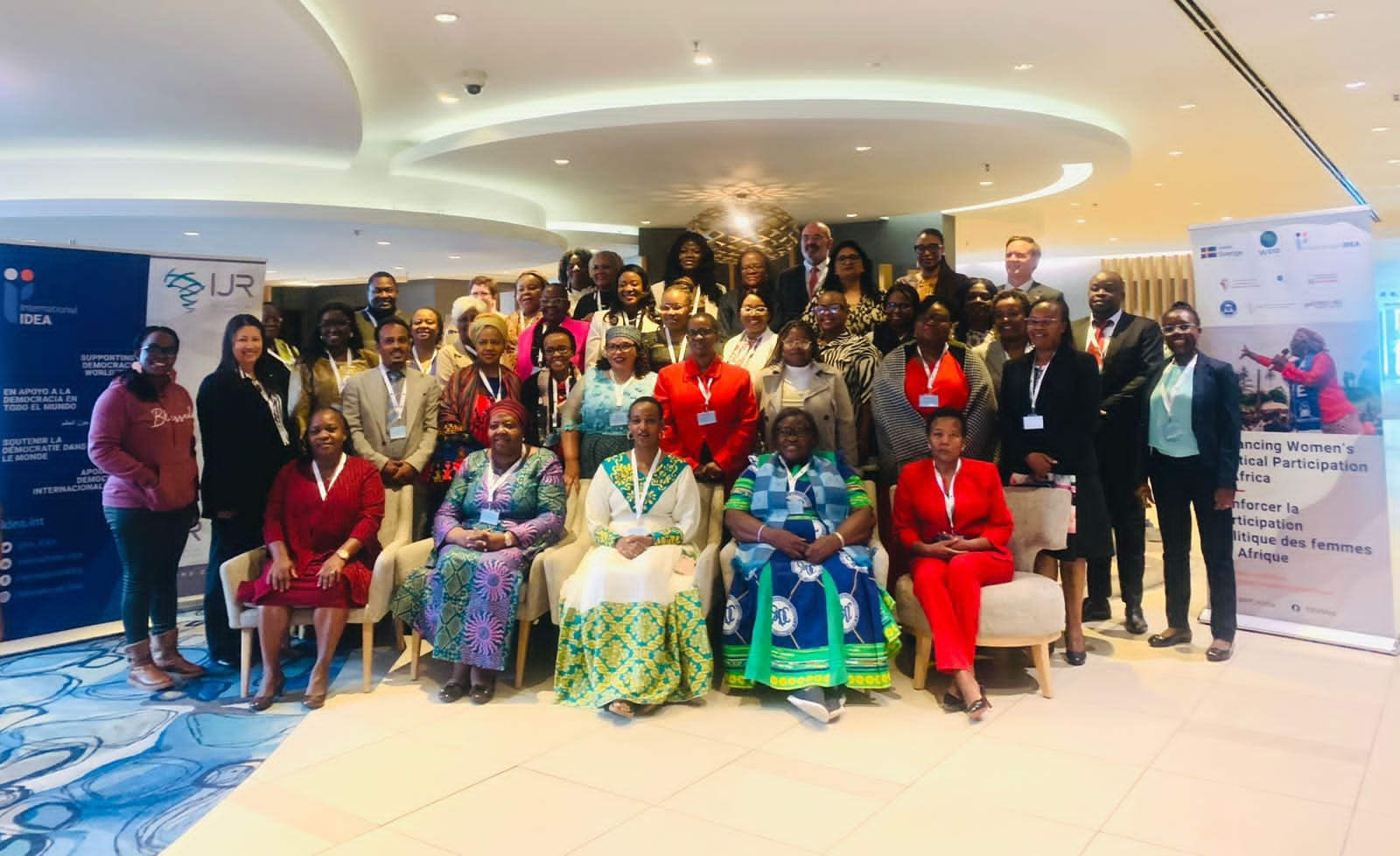|
Getting your Trinity Audio player ready...
|
The ‘Critical Conversations on Women Peace and Security in Africa’ symposium took place in Johannesburg, with participants from various sectors extending their support for the dialogue. They emphasized its crucial role in advancing gender-inclusive peace processes across the continent.
As the clock ticks towards the 25th anniversary of the Women’s Peace and Security (WPS) Agenda, stakeholders from across Africa gathered in Johannesburg for a pivotal high-level dialogue. Guided by the United Nations Security Council Resolution 1325, this dialogue, hosted by International IDEA, Women in Political Participation, and the Institute for Justice and Reconciliation (IJR), supported by the Government of Sweden and the Embassy of Ireland in South Africa, sought to scrutinize the journey, progress, and challenges faced in the implementation of the WPS Agenda in Africa.
As the dialogue kicked off, Ms Josephine Mwangi, Programme Manager at International IDEA, and Prof Cheryl Hendricks, Executive Director of the IJR, emphasized the critical importance of this gathering as a catalyst for transformative change, towards a future where women are not only safeguarded from conflict but also actively contribute to building lasting peace on the African continent.
In her message of support, Ms Aletta Miller, UN Women Representative, South Africa Multi-Country Office, stated that, “It has been 24 years of the UNSCR 1325, and since then, Africa, has made progress. A significant number of countries have adopted National Action Plans on Women, Peace and Security, and this must be celebrated.” She highlighted the importance of collaborative efforts in promoting women’s empowerment and ensuring their meaningful participation in peacebuilding initiatives.
Ms Nthabiseng Malefane, Women, Peace and Security Focal Point, Department of International Relations and Cooperation (DIRCO), underscored DIRCO’s commitment to promoting women’s rights and enhancing their role in conflict resolution and peacebuilding efforts. She stressed the need for strategic partnerships and coordinated action to address the underlying drivers of insecurity in Africa, especially between government and civil society to create an enabling environment.
In her message (delivered by Colonel Marie Venter), Major General Zuziwe Maso, Chief Director of Transformation Management, South African National Defence Force, reiterated that “We need to adapt our approach, re-evaluate our objectives, align our plans and as we say in the South African National Defence Force – throw smoke and move through the objective. We cannot allow circumstances, sometimes beyond our control, to dictate the future of women. We owe it to those who paved the way for progress, not to become undone. We need to be resilient in our efforts, at all levels we represent, to gain momentum towards progress.”
Dr Gram Matenga, Head of Programmes, International IDEA Africa and West Asia, emphasized that the level of implementation of the UNSC Resolution 1325, can be measured by the rollout of National Action Plans on WPS across the continent. However, the effectiveness of these National Action Plans varies, due to different challenges. He highlighted the need for evidence-based policies and interventions to address the structural barriers that hinder women’s empowerment, especially in peace-building roles.
Mr Christian Fogelstrom, Deputy Head of Mission, Embassy of Sweden, South Africa, stated that supporting Women, Peace and Security is a key agenda for Sweden, and they are glad to be a key partner in this endeavour.
Their messages of support underscore the collective commitment to advancing the Women’s Peace and Security agenda in Africa and reaffirm the importance of collaboration and dialogue in building more peaceful and inclusive societies.
Speaking on the key drivers of conflict and insecurity in Africa, Prof Funmi Olonisakin, Vice President of International Engagement and Service, at Kings College, pointed out that, “At the end of 25 years, we have not achieved the aims of the Women Peace and Security agenda, due to power dynamics and challenges that underpin the agenda.” She therefore made a case for a strong plan of action to be laser-focused in our pursuit of transformation, starting with internal interrogation.
In her keynote address, Prof Hendricks gave insight into the progress and challenges in the Women, Peace and Security context, noting that, “When it comes to women’s inclusion in peace and security structures and processes and more importantly their safety, we see the growing gap between policy frameworks and their actual implementation. We therefore cannot keep doing the same thing – we must begin to rethink what we do, how we do it, and more importantly what we want and how to get that.”
With the global landscape marred by escalating conflicts and persistent threats to women’s security, the urgency for critical reflection and action couldn’t be more pressing. Nearly a quarter-century after the adoption of UNSC Resolution 1325, the strides made in women’s participation in political decision-making and security sectors are commendable. However, the pace of progress remains far from satisfactory, and the challenges are manifold.
The Critical Conversations on Women’s Peace and Security in Africa closed with participants engaging in in-depth discussions on key challenges and opportunities for advancing gender equality and peacebuilding efforts across the continent.






